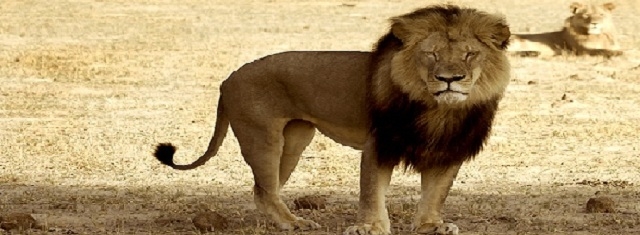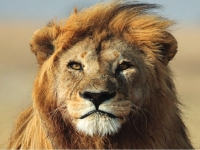Health
DOES LION TROPHY HUNTING REALLY CONTRIBUTE TO AFRICAN COMMUNITIES ?
MATTER FOR CONSERVING THE SPECIES

(Source: IFAW)
Follow extracts of the report :
- "Advocates for the African trophy hunting industry invariably claim that hunting revenues provide benefits to rural communities. Responding to calls to list African lions on the US Endangered Species Act, Safari Club International officials stated:
Hunters and hunting actually benefit Africa´s lions - as well as its humans. Revenues from hunting generate $200 million annually in remote rural areas of Africa." (Rudolph and Hosmer 2011)
- "Advocates for the African trophy hunting industry invariably claim that hunting revenues provide benefits to rural communities. Responding to calls to list African lions on the US Endangered Species Act, Safari Club International officials stated:
Hunters and hunting actually benefit Africa´s lions - as well as its humans. Revenues from hunting generate $200 million annually in remote rural areas of Africa." (Rudolph and Hosmer 2011)
- "Despite being listed by the IUCN as “vulnerable“ African lions are targeted by commercial trophy hunting operators in at least 8 countries (Lindsey et al. 2012). Numbers of wild lions have been in rapid decline in recent years. Estimates of the current population are between 32,000 and 35,000 (Riggio et al. 2012), a decline of more than 30% in the last twenty years"(Nowell et al. 2012)
- "Commercial trophy hunting operates to differing degrees in around 14 African nations, the major countries being South Africa, Tanzania, Botswana and Zimbabwe (Booth 2010). Trophy hunting attracts much attention due to the nature of the business ““ foreign tourists (aided by foreign hunting companies) killing wild animals, including endangered species, in low-income countries with limited governance."
- "Most tourism in African lion range countries is non“consumptive nature tourism. Among holiday and leisure visitors, nature“based attractions are the dominant motivations for travelling to southern Africa..."
- "As a portion of any national economy, trophy hunting is completely insignificant, with revenue never accounting for more than 0.27% of GDP (Namibia)..."
- "As a portion of any national economy, trophy hunting is completely insignificant, with revenue never accounting for more than 0.27% of GDP (Namibia)..."
- "The African Lion Coalition´s proposal to list lions on the United States Endangered Species Act would limit the importation of lion trophies hunted in Africa. This does not equate to a ban on hunting of lions, but aims to reduce the number of lions shot by American hunters, as it is thought fewer trophy hunters would choose to hunt lions if they are unable to return home with a trophy..."
- "Given the relatively minor role that lion hunting plays in overall trophy hunting revenue generation and the ability of hunters to substitute lion hunts with hunts of other species, it seems highly unlikely that an ESA listing would have any material impact on the industry."
- "Given the relatively minor role that lion hunting plays in overall trophy hunting revenue generation and the ability of hunters to substitute lion hunts with hunts of other species, it seems highly unlikely that an ESA listing would have any material impact on the industry."
Ruby Bird Lions Africa Hunting Killing Economy Endangered Industry Community Business Trophy Species Wildlife Game Flora Decline Wild Protection Population Ban Traffic Tourism Animals
Liability for this article lies with the author, who also holds the copyright. Editorial content from USPA may be quoted on other websites as long as the quote comprises no more than 5% of the entire text, is marked as such and the source is named (via hyperlink).






